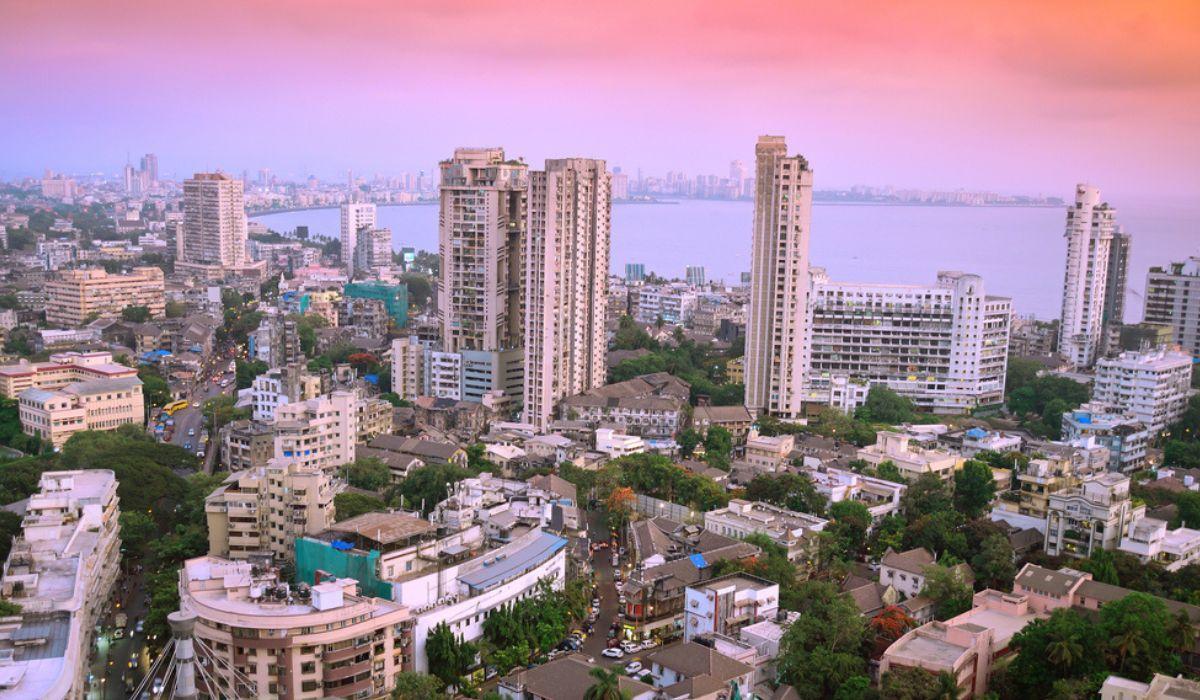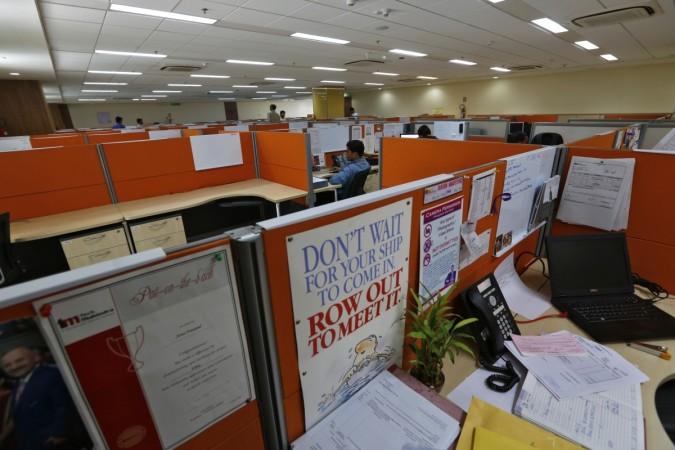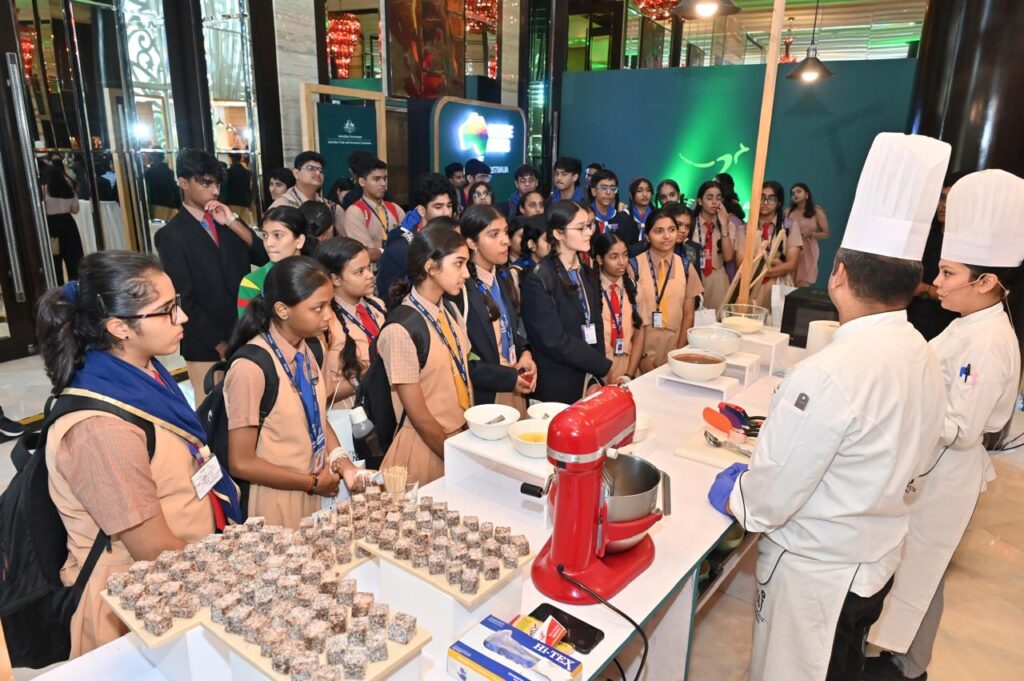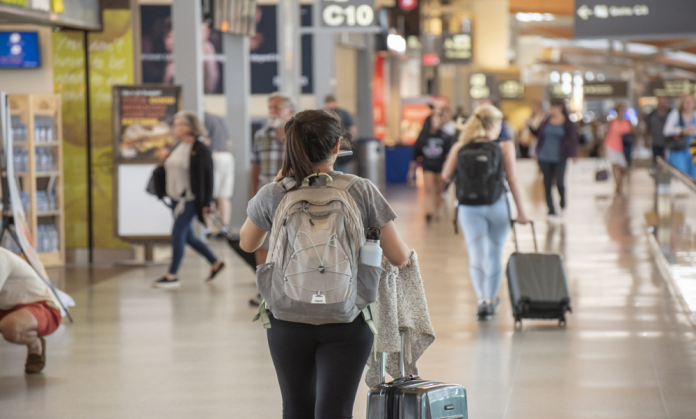19th October 2024 Mumbai, Maharashtra, India Mumbai is poised to lead the next wave of Gen AI innovation as the Tech Entrepreneurs Association of Mumbai (TEAM) and Made in Mumbai, in partnership with NVIDIA, Meta, Quantiphi and ATLAS SkillTech University, is set to host India’s largest Gen AI Hackathon-‘MumbaiHacks’. The event will be held at ATLAS SkillTech University in BKC, Mumbai, on October 25th and 26th, 2024. Building on the excitement, Mumbai will host a landmark AI Week this month, starting with NVIDIA’s flagship AI Summit-one of just three global conferences, alongside Washington D.C. and Japan-followed by the eagerly awaited ‘MumbaiHacks’.
Marking its two years of operations, TEAM has consistently pushed boundaries in positioning Mumbai as a global tech hub, and ‘MumbaiHacks’ will significantly reinstate the efforts. TEAM is committed to democratizing the advancement of Gen AI innovation, by bringing together not only engineers and developers but also key stakeholders from policy, politics, civil society, law, non-profits, business, the creative arts, film, and journalism to ensure a holistic approach to AI innovation that is informed by a broad range of perspectives, to drive solutions that are both impactful and far-reaching.
In its third edition, ‘MumbaiHacks’ continues to elevate the city’s tech dominance, growing in scale and impact with each passing year. This year, the hackathon debuts an enhanced and elevated format, with a distinguished jury of industry leaders including Siddharth Roy Kapur, Founder & MD, Roy Kapur Films; Faye Dsouza, Journalist; Aakrit Vaish, Advisor, IndiaAI; Naiyya Saggi, Co-Founder, Good Glamm Group; Vivek Khemani, Co-Founder, Quantiphi; Aakash Kumar, MD, Z47; Sumeet Mehta, Co-Founder, LEAD School;; Sameer Nath, CIO & Head, 360 ONE AMC; Deepti Shibad, Director, Crisil; Sanjiv Bhatia, President & Head, New Economy Group, Axis Bank; Raj Aradhyula, CDO, Fractal; Abhishek Ravi, CIO, Dream Sports; Harshjit Sethi, MD, Peak XV & Priti Rathi Gupta, Co-Founder, Lxme.
MumbaiHacks will challenge developers to innovate with purpose, focusing on four key tracks that reflect the most impactful opportunities in AI-driven transformation:
- Social Good: economic development, science & innovation, public services & education & skills
- Finance: fintech, investments, banking & wallets
- Entertainment: art, games, movies & AR/VR
- Saas: platform, productivity, marketing & CRM
“MumbaiHacks is set to become the world’s largest gen AI hackathon, with over 2,000 developers pushing the boundaries of technology and setting new benchmarks. As Gen AI’s impact expands, this event will bring together the brightest minds to tackle today’s most pressing challenges. Positioned at the heart of one of India’s most dynamic tech ecosystems, MumbaiHacks will be a catalyst for cutting-edge innovation and a game-changer for the future of technology. This year’s edition promises not just to meet expectations but to redefine them. Adding to the excitement, Mumbai will host a landmark AI Week featuring NVIDIA’s flagship AI Summit—one of only three held globally alongside Washington D.C. and Japan—followed by the highly anticipated MumbaiHacks. This week will firmly establish Mumbai as a key player in the global AI landscape,” said Aakrit Vaish, Co-Chair, Tech Entrepreneurs Association of Mumbai (TEAM), Advisor to the India AI Mission and Co-Founder, Haptik.
“At Meta, we believe that AI should be open and accessible to everyone, especially in India. We support partners like TEAM to foster innovation and empower developers, researchers, and entrepreneurs to create solutions for societal challenges. Our vision is to democratize AI, driving impact for communities across India. Through collaboration and transparency, open-source AI can serve as a force for good, amplifying tech-driven social transformation. We are excited to see how ‘MumbaiHacks’ can harness the power of GenAI to tackle real-world challenges and further India’s status as a global hub for AI innovation,” said Shivnath Thukral, Vice President and Head of Public Policy, Meta India, while commenting on Mumbai Hacks.
Some of the leading generative AI companies that are members of the Tech Entrepreneurs Association of Mumbai (TEAM) include Haptik, Fractal, Invideo, Gupshup, Quantiphi, Pepper Content, Consumr.ai, Netcore, Neysa Networks, CleverTap, Sifthub and Babblebots.AI, among others. These innovators are shaping Mumbai’s reputation as a key hub in the global AI landscape, driving advancements across conversational AI, content creation, data analytics, and automation.
Talking about the milestone initiative in the city, Shiv Sena UBT leader and former Maharashtra cabinet minister, Aaditya Thackeray earlier tweeted, “It’s incredible to witness one of the world’s biggest hackathons unfold right here in Mumbai. The fusion of innovation, creativity and technology has the potential to shape the future in ways we can’t yet imagine.”
According to an EY report, Gen AI could boost India’s GDP by $359-438 billion by 2030, representing a 5.9-7.2% increase. Over seven years, the cumulative impact could reach $1.2-1.5 trillion, adding 0.9-1.1% to annual growth. The impact will vary across sectors, with business services, finance, transportation, education, retail, and healthcare expected to benefit most. Projected to become the third-largest economy by 2027, India’s path to a $26 trillion future hinges on General AI.
The Tech Entrepreneur’s Association of Mumbai (TEAM’s) areas of focus center around creating a supportive environment for cementing Mumbai as a global hub for the venture and startup ecosystem and to support India’s potential to be a trillion-dollar digital economy. The operating principles it is built on are in creating macro and micro communities of founders, CXOs, teams, institutionalised inclusive mentorship opportunities for younger ventures and teams along with building infrastructure and skilling capabilities with strategic government, venture and corporate partnerships.
Key tracks & problem statements:
Social Good:
- Economic Development: The vast majority of our population is underserved and not catered to. Can we use AI to promote their financial inclusion and economic empowerment?
- Science and Innovation: Implement AI-based systems to detect food adulteration, ensure food safety, and enhance quality control.
- Public Service: Our country needs to make public spaces safer. Can an AI powered system solve for reducing the rate of crimes against women?
- Education and Skills: Classroom learning ignores diversity in people. How can AI help bridge the gap between teaching at scale and individual needs?
Finance:
- Fintech: India needs its own way to assess creditworthiness beyond just credit scores. Can AI look at alternative data sources and predict it instead?
- Investments: There’s a million sources of financial advice and investment recommendations on the internet. Can people have their own personalized AI-powered one?
- Banking: AI is getting better and better at impersonation and fraud. How do we keep people safe?
- Wallets: Temperatures globally are on the rise. Can AI use our transaction data to intelligently track and then suggest ways to reduce our carbon footprint?
Entertainment:
- Art: India’s heritage is full of vibrant and unique art, but many have been damaged or degraded. Can AI undo the effects of time?
- Games: Games are for everyone, with varying ability and skill sets. How can AI personalize game content and difficulty to match the player?
- Movies: One trailer per movie doesn’t quite cover everyone’s favorite parts. Can AI generate trailers with different highlights for varying demographic needs?
- AR/VR: AI has a lot of potential in healthcare training and surgical simulation. How can we make this happen in AR or VR?
SaaS:
- Platform: Hyperlocal has taken off in India, but demand prediction remains a challenge. Can AI help with inventory management?
- Productivity: Work from home culture is here to stay. How can we use AI to make the new normal easier for managers and employees alike?
- Marketing: India is diverse and marketing needs to adapt. How can AI help with Indian consumer behavior patterns, cultural nuances, and regional preferences?
- CRM: CRM segmentation typically overlooks a lot of Indian-specific nuances, like culture, region and socio-economics. Can AI help bridge those gaps






 Mumbai, 15th November 2024: The Australian Trade and Investment Commission (Austrade) organised first-of-its-kind 4-city showcase titled “Festival of Australia” in Mumbai that brought together Australia’s top-quality institutions, universities, retail and other trade partners on a single platform and showcased Australia’s premium F&B products to Indian consumers.
Mumbai, 15th November 2024: The Australian Trade and Investment Commission (Austrade) organised first-of-its-kind 4-city showcase titled “Festival of Australia” in Mumbai that brought together Australia’s top-quality institutions, universities, retail and other trade partners on a single platform and showcased Australia’s premium F&B products to Indian consumers.



